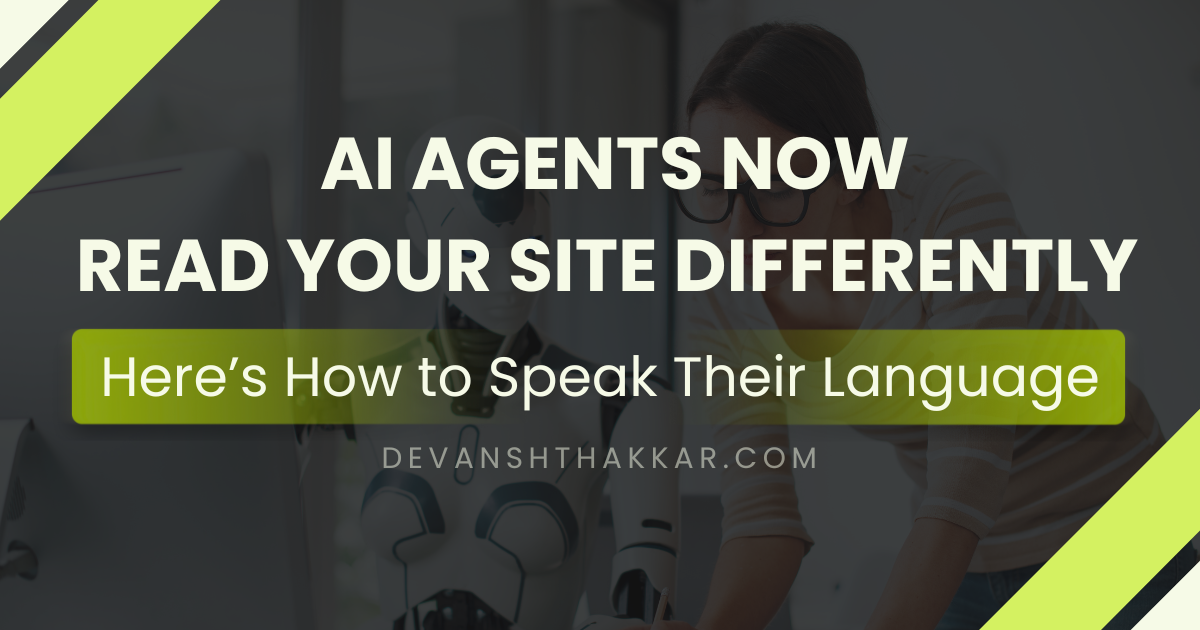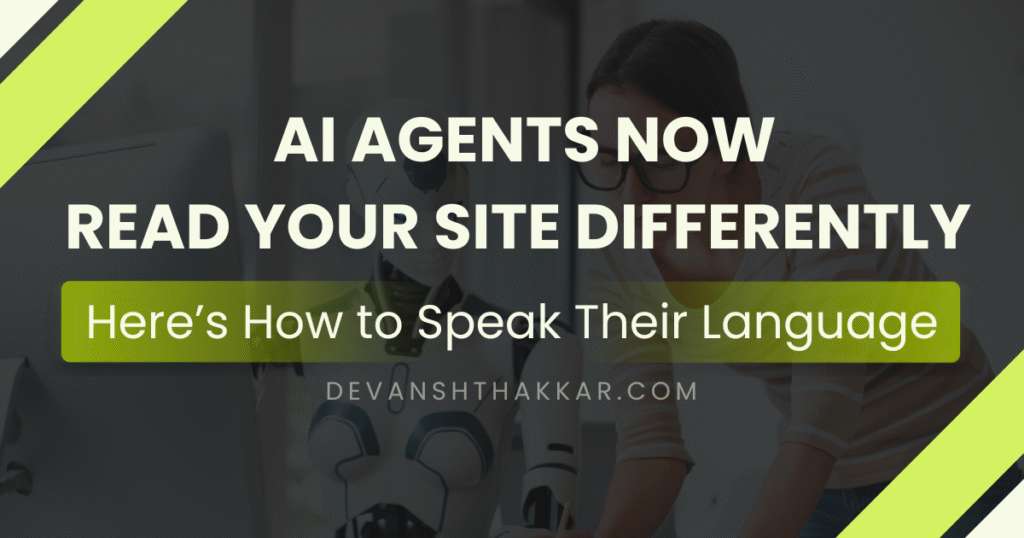AI Agents Now Read Your Site Differently, and if you do not tailor your web content and technical structure to their needs, they might skip over you. This guide shows what matter in 2025, and exactly how to make your site talk their language and win visibility.
What Does It Mean That AI Agents Now Read Your Site Differently
When AI Agents Now Read Your Site Differently they use tools like Schema structured data, agent‑responsive design, llms.txt files and clean HTML structure to interpret content, not just keywords and page rank. AI agents such as OpenAI’s Operator or Google’s future agents browse, analyze and even act on behalf of human users using your site content and code :contentReference[oaicite:2]{index=2}.
How To Speak Their Language Effectively
Speak to AI agents by using structured data, accessible metadata, and clear navigation. Follow agent‑responsive design principles so agents can parse content easily and perform actions like filling forms or reading FAQs :contentReference[oaicite:3]{index=3}.
| Action | Benefit For Agents |
|---|---|
| Use Schema.org structured data | Helps agents understand article, product or FAQ content |
| Create an llms.txt file | Gives agents direct roadmap to key content |
| Ensure site navigation uses consistent HTML structure | Enables agents to reliably locate menus, forms and CTA |
| Whitelist AI crawler agents in robots.txt | Ensures agents can crawl and index your site content |
Structured Data Matters Because AI Agents Now Read Your Site Differently
AI agents still rely on code cues to make sense of text. JSON‑LD schema helps them tag articles, contact info, FAQs or business profile. This increases the chance your content appears in AI generated answers or gets cited in search summaries :contentReference[oaicite:4]{index=4}.
Technical Setup That Works In Your Favor
Update your robots.txt to allow recognized AI bots and avoid aggressive firewalls that may block cloud based agents. Consider adding an llms.txt file at the root to highlight your top content and help agents access it directly :contentReference[oaicite:5]{index=5}.
Need deeper guidance? Read Google’s own tips for succeeding in AI‑powered search experiences here: Google’s blog on AI search best practices.
Why You Should Care Now
Because AI Agents Now Read Your Site Differently, your visibility and conversions depend on how friendly your site looks to agents. Brands that adapt see better discovery, more accurate citation and even agent‑triggered contact actions.
That means if your content lacks structure or you block agent bots, you lose. Agents won’t guess—they’ll skip. And agents decide more and more what users see or click next.
Easy Wins To Implement Today
- Check your robots.txt and allow known AI agent crawlers
- Add Schema.org markup to key pages and contact info
- Create llms.txt summarizing your services and FAQs
- Use clear headings, bullet lists and FAQ format
- Then reach out via contact form so I can help fine tune your website for agents
Curious what works? Visit our homepage for case studies and to see agent‑ready design in action.
FAQs About AI Agents Now Read Your Site Differently
It means AI agents analyze structure, schema, accessibility, metadata and navigation cues rather than just scanning for keywords or ranking signals.
Yes, well structured content is more likely to be cited in AI driven summaries, answer snippets, and even trigger agent‑driven clicks or form fills.
Not necessarily. Many CMS platforms or simple plugins support schema and you can create llms.txt with basic text. I can guide you.
No downside if you only include public content. You are just helping agents read what you already publish.
Not always. You can start with key pages and add structure. If your site still uses outdated templates or blocks crawlers, a refresh may be best.




